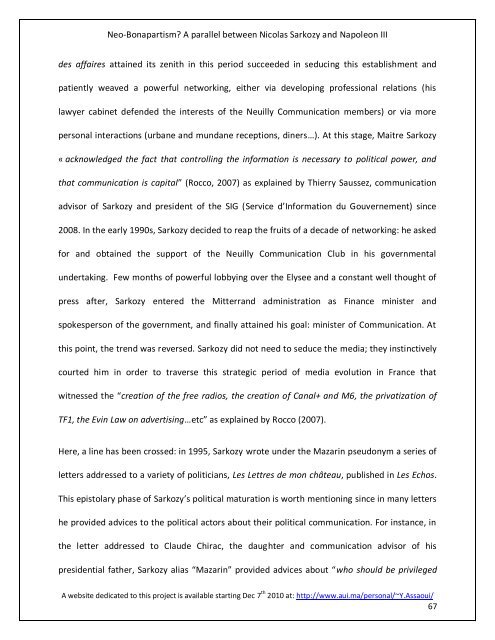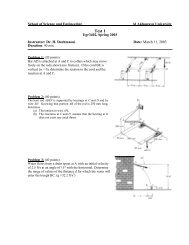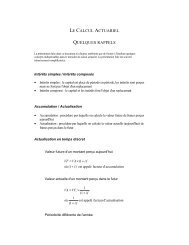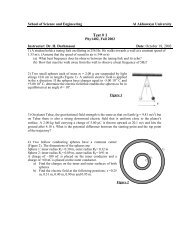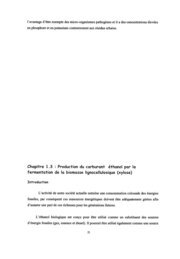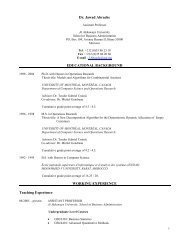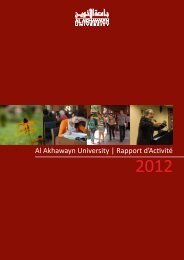Neo-Bonapartism? A parallel between Nicolas Sarkozy and ...
Neo-Bonapartism? A parallel between Nicolas Sarkozy and ...
Neo-Bonapartism? A parallel between Nicolas Sarkozy and ...
Create successful ePaper yourself
Turn your PDF publications into a flip-book with our unique Google optimized e-Paper software.
<strong>Neo</strong>-<strong>Bonapartism</strong>? A <strong>parallel</strong> <strong>between</strong> <strong>Nicolas</strong> <strong>Sarkozy</strong> <strong>and</strong> Napoleon III<br />
des affaires attained its zenith in this period succeeded in seducing this establishment <strong>and</strong><br />
patiently weaved a powerful networking, either via developing professional relations (his<br />
lawyer cabinet defended the interests of the Neuilly Communication members) or via more<br />
personal interactions (urbane <strong>and</strong> mundane receptions, diners…). At this stage, Maitre <strong>Sarkozy</strong><br />
« acknowledged the fact that controlling the information is necessary to political power, <strong>and</strong><br />
that communication is capital” (Rocco, 2007) as explained by Thierry Saussez, communication<br />
advisor of <strong>Sarkozy</strong> <strong>and</strong> president of the SIG (Service d’Information du Gouvernement) since<br />
2008. In the early 1990s, <strong>Sarkozy</strong> decided to reap the fruits of a decade of networking: he asked<br />
for <strong>and</strong> obtained the support of the Neuilly Communication Club in his governmental<br />
undertaking. Few months of powerful lobbying over the Elysee <strong>and</strong> a constant well thought of<br />
press after, <strong>Sarkozy</strong> entered the Mitterr<strong>and</strong> administration as Finance minister <strong>and</strong><br />
spokesperson of the government, <strong>and</strong> finally attained his goal: minister of Communication. At<br />
this point, the trend was reversed. <strong>Sarkozy</strong> did not need to seduce the media; they instinctively<br />
courted him in order to traverse this strategic period of media evolution in France that<br />
witnessed the “creation of the free radios, the creation of Canal+ <strong>and</strong> M6, the privatization of<br />
TF1, the Evin Law on advertising…etc” as explained by Rocco (2007).<br />
Here, a line has been crossed: in 1995, <strong>Sarkozy</strong> wrote under the Mazarin pseudonym a series of<br />
letters addressed to a variety of politicians, Les Lettres de mon château, published in Les Echos.<br />
This epistolary phase of <strong>Sarkozy</strong>’s political maturation is worth mentioning since in many letters<br />
he provided advices to the political actors about their political communication. For instance, in<br />
the letter addressed to Claude Chirac, the daughter <strong>and</strong> communication advisor of his<br />
presidential father, <strong>Sarkozy</strong> alias “Mazarin” provided advices about “who should be privileged<br />
A website dedicated to this project is available starting Dec 7 th 2010 at: http://www.aui.ma/personal/~Y.Assaoui/<br />
67


